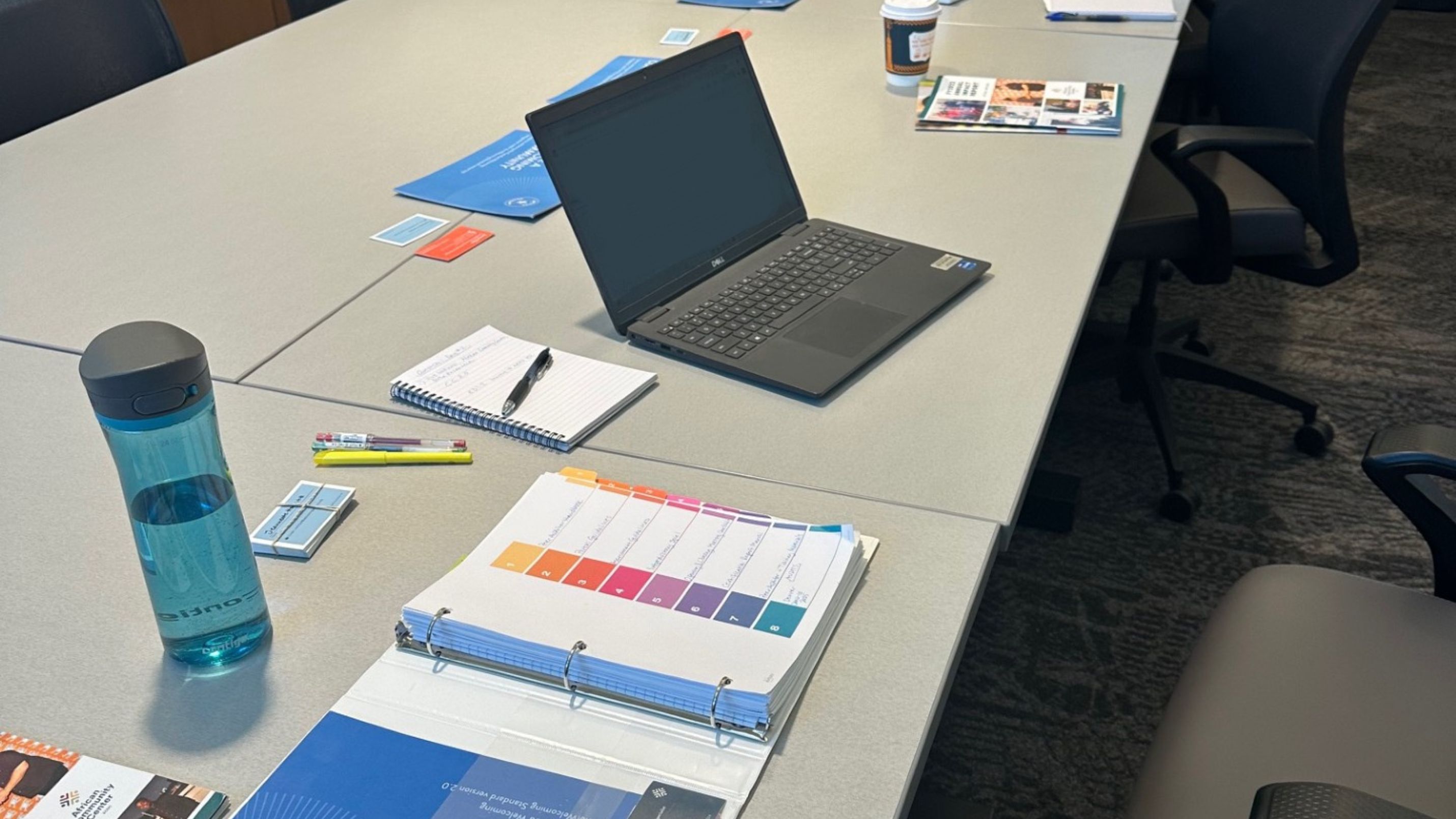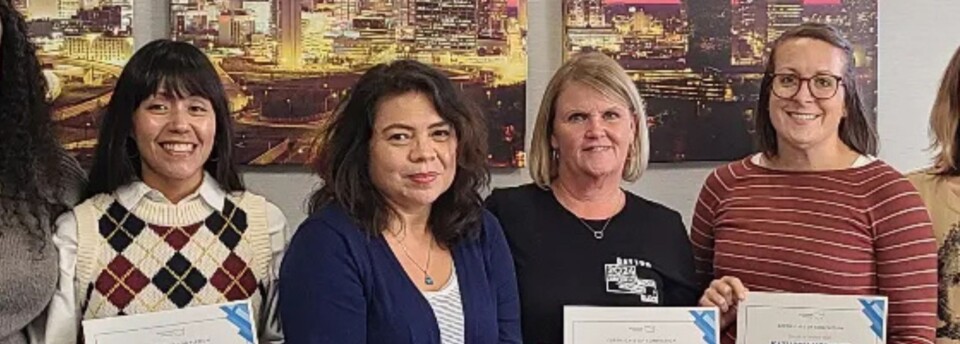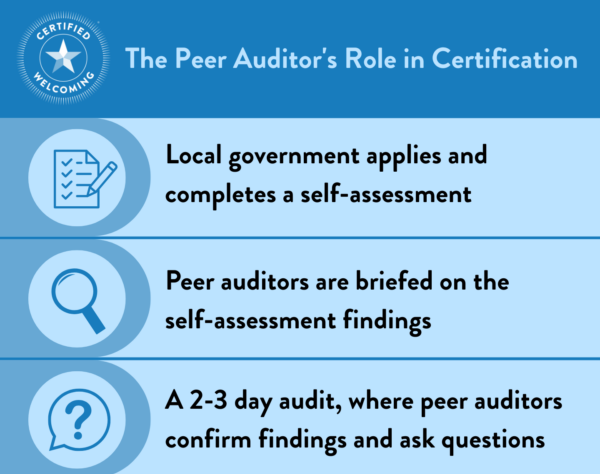
Behind the Scenes with Certified Welcoming Peer Auditors
Introducing the Peer Auditor Program
The Certified Welcoming audit is one of the most important and engaging parts of the certification process.
During the audit, immigrant community members, local organizations, and government employees and officials come together to share details about the policies, programs, processes, and partnerships that qualify their community for the highest recognition in the welcoming movement.
To become Certified Welcoming, a community must meet specific criteria in the Welcoming Standard. This requires an objective and careful auditor who can ask the right questions and assess the community’s work.
Welcoming America recently piloted a peer auditor program to not only make audits more efficient and better aligned with industry practices, but to also support professional development within the welcoming movement. Through the pilot, we tested ways to better support auditors and the communities applying for certification.
Why a peer auditor program?

Until recently, only Welcoming America staff and consultants served as auditors. In fall 2024, we launched a peer auditor pilot program to allow people from communities who have already completed the certification process to help with audits. Four individuals participated in the pilot.
A peer auditor program will improve the quality of our audits and build stronger connections across our network and between communities. Peer auditors can learn from and share advice with other communities (and each other), building a more unified welcoming movement across the country.
What’s in it for peer auditors?
Serving as a peer auditor offers unique opportunities for:
- Professional development
- Networking
- Understanding the Welcoming Standard
- Learning about policies and programs in other welcoming communities
Being a peer auditor is an excellent professional development opportunity. Participants get ideas that they can bring home and apply in their own inclusion efforts.
“Our city’s certification journey was so eye-opening and I relied heavily on support and expertise from others in the field. It was really exciting to have the opportunity to serve in a similar role for other localities and to learn about welcoming practices taking place all over the country. It is such a unique way to stand up for welcoming and to support Welcoming America in certifying as many localities as possible. Even the peer auditor training gave me fresh ideas and a new perspective on many aspects of the Welcoming Standard.”
— Katie Hedrick, City of Roanoke, Virginia
In return, peer auditors make the certification process better. They provide feedback Welcoming America uses to improve audits, helping us certify even more communities by expanding our team’s capacity.
What do peer auditors do?
Before they begin an audit, peer auditors undergo training to learn how to evaluate welcoming communities. This starts with over 20 hours of training, diving deep into each pillar of the Welcoming Standard and using case studies and mock audits to practice assessing communities.
Peer auditors receive a certificate acknowledging the completion of their training. Now, they’re ready to participate in their first audit.
“I joined the peer auditor pilot program after going through the certification process for the City of Austin. I wanted to be a part of the program to help support other cities and to also learn about the great work happening in other municipalities. It’s a critical time for local government to support welcoming initiatives for our immigrant communities and I’m proud to be part of the program.”
— Rocío Villalobos, City of Austin, Texas
Who can be a peer auditor?
Certified Welcoming peer auditors are welcoming practitioners — individuals who have a deep knowledge of and commitment to immigrant inclusion practices and policies.
“Completing my first peer audit was both rewarding and challenging, offering valuable professional growth. I was inspired by the genuine commitment of a community dedicated to its welcoming efforts and by the powerful impact of policies and practices that ensure inclusivity for all.”
— Jeannette Horwitz, City of Dayton, Ohio
Since auditors interview a variety of people with different views, they must be open-minded and diplomatic when communicating with others.
To keep the process fair, peer auditors cannot select the community they certify, and must report any potential conflicts of interest once they’re assigned to an audit.
See yourself in this role? Let us know you’re interested
Applications to become a Certified Welcoming peer auditor are currently closed. If you’re interested in future opportunities, complete this form and we’ll let you know the next time applications open!
In the meantime, learn more about Certified Welcoming and the Welcoming Standard.
